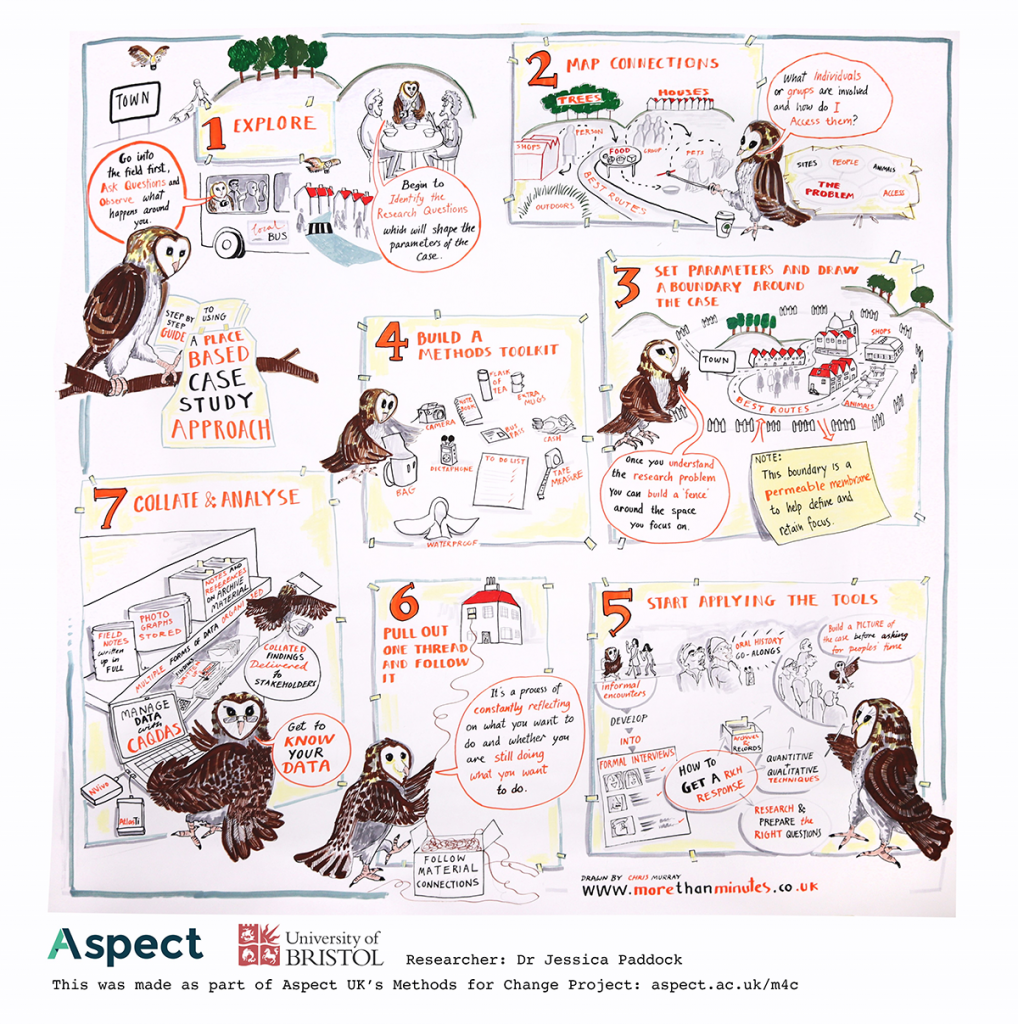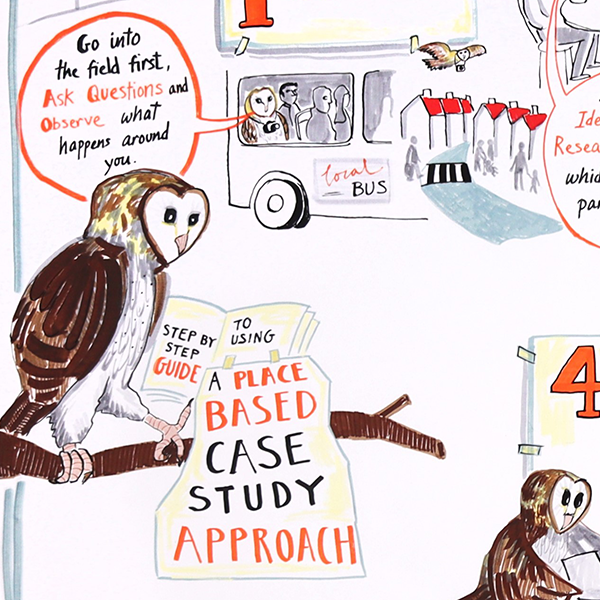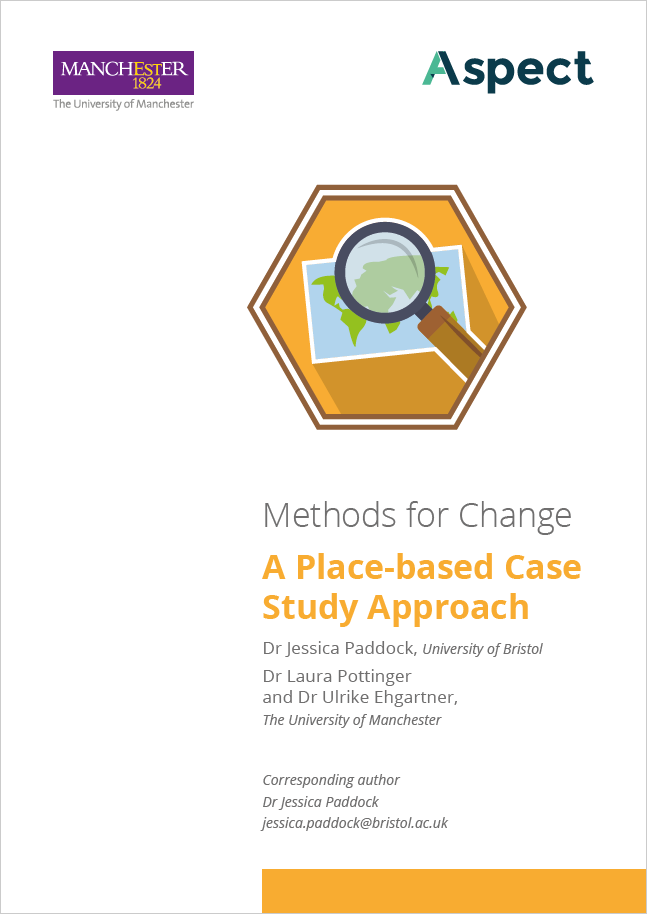Research Method: A Place-based Case Study Approach
In Place-based Case Study Approaches, research is framed around a particular place, which can take various forms: a ward, an island, a region or the geographical reach of an organisation.
One aspect of Place-based Case Study research that is different from many traditional approaches is that research questions are not determined at the beginning of a project, but are developed in the process of carrying out research in a place. Researchers start with a broad view of a problem or topic and generate the important questions over time, as they become more informed. A Place-based Case Study Approach borrows largely from ethnographic research methods, studying ‘doings’ and ‘sayings’ of people within a defined geographical boundary. It thereby draws from a rich toolbox of methods, including informal, in-situ conversations, participant observation, archival research, and formal interviewing which can take different shapes – from structured interviews with local government representatives in their offices, to spending an afternoon partaking in conversations with a family in their living room. This approach often involves the collection of stories which complement systematically gathered data by illuminating the socio-economic and political complexities behind social and environmental challenges.

You can find all the research outputs from the Methods for Change series here






